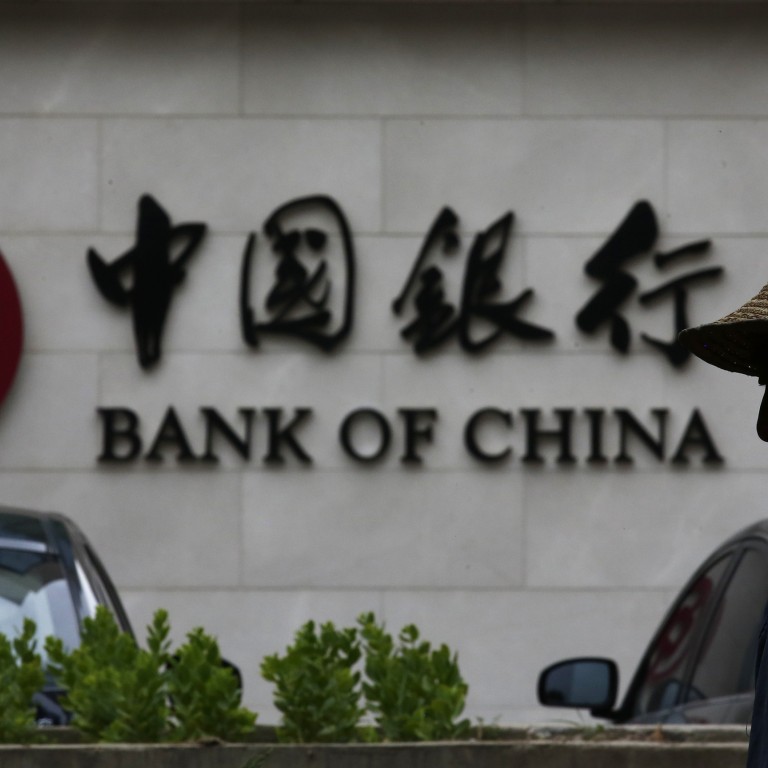
Heat from CCTV exposé unlikely to hit mainland cash outflows
Transfers under BOC scheme make up only a fraction of capital flight, analysts say
Overseas investment flows from the mainland are likely to suffer only a minor setback in the wake of a scandal that has embroiled one of its biggest banks in a row over alleged breaches of strict foreign exchange controls.
A Bank of China official who asked not to be named told the the State Administration of Foreign Exchange had temporarily shut down the bank's Youhuitong service just days after state broadcaster China Central Television accused the bank of using the service for money laundering. SAFE declined to comment.
But the billions of yuan funnelled so far this year through the service, which BOC said was launched under the auspices of the authorities such as SAFE in 2011 to help better manage foreign exchange flows, are only a fraction of either major cross-border commercial deals in the first half of the year or private sector property purchases.
Analysts say a clampdown on the scheme following the CCTV exposé will barely be noticed given the scale of capital seeking to leave the mainland.
Thomas Lam, a senior director and head of valuation and consultancy at Knight Frank, said he did not expect a halt to the exchange service to stop mainlanders from buying property overseas.
"For years, China has imposed foreign exchange restrictions but Chinese purchases of overseas properties keep increasing," Lam said. "There are so many channels to transfer money."
A Hong Kong immigration consultant said BOC's network of overseas branches helped it succeed in moving large amounts of money abroad. Still, the exchange service was just one of many ways individuals sent money abroad.
Many banks did not require clients to exchange money at all, the consultant said. Banks simply debited clients' mainland accounts and credited their accounts in places such as Hong Kong, making the transactions hard to track.
"Youhuitong was Bank of China's wealth management plan," the consultant said. "But many other banks have plans just like this."
Industry and regulatory officials said it would take at least several months for SAFE to lift a "temporary" ban on the plan.


